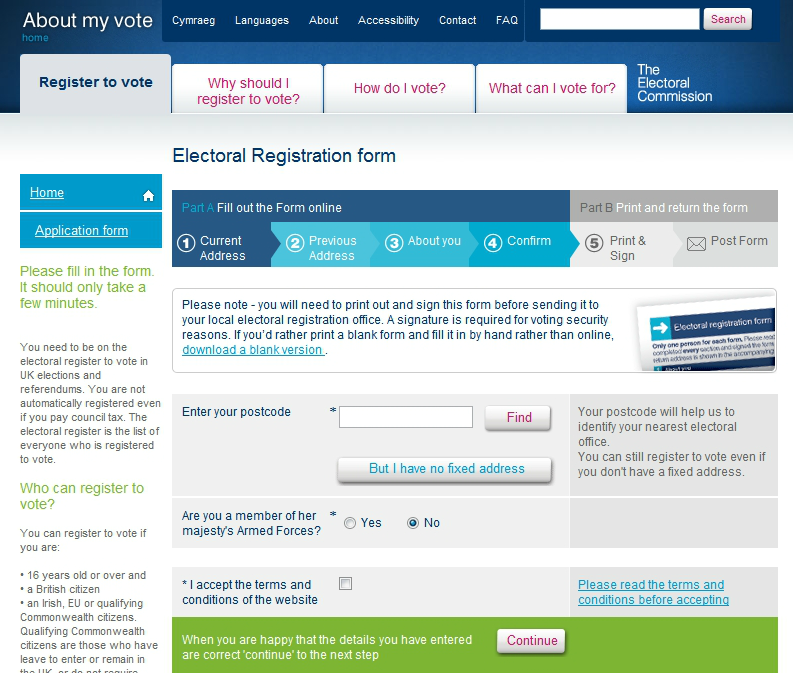Give people power over the sharing of their data: getting electoral registration right

I wrote the following piece for the IPPR think tank, responding to Sarah Birch’s criticisms of the data-sharing proposed under new individual electoral registration reforms. I argue that the answer lies in giving people control over their personal data.
It is a curio about the relative roles of the US and Northern Ireland in Westminster political culture that debates about electoral registration often feature references to America, with its very different systems, and only rarely feature Northern Ireland, with its very similar system.
The lessons from Northern Ireland are very pertinent and are two-fold:
- first, that getting the initial transition wrong can produce a large fall in the electorate
- second, that if you then get the regular process right, registration levels in the medium term end up being decent rather than collapsing.
The first lesson certainly has been learned, with key differences in the transition process proposed for the rest of the UK from that used in Northern Ireland.
On the second point, one of the risks, as Sarah Birch argues in her Juncture article, is that people react to how they perceive the system rather than to the obscure technical details of how it actually works. There is an obvious parallel here with the new university tuition fees system and the risk that people react to a large nominal amount of debt rather than making decisions based on careful calculations of likely future monthly repayment sums.
Sarah Birch’s argument is that using data from other sources to help make for a more accurate electoral register creates the risk that people will want to stay off the register because they see it too closely interlinked with other aspects of the state, echoing what happened with the poll tax in the early 1990s.
There is, however, much merit in making a proper virtue of this impending overlap: don’t focus so much on keeping data separate but instead focus on giving the public control over whether or not their own data should be kept separate or shared.
If I were to move, I would be quite happy to let the gas company, the TV Licensing authority, the local council’s tax department, the electoral registration services and many others know, all in one go. Other people may well not be happy to do the same – but in the desire to ensure that those who want to keep data separate rightly have their rights respected we have too often overlooked the opportunities to make it easier to share data wherever people are happy for this to happen.
The best outcome would be a shared change of address service with three tiers:
- only tell the electoral registration authorities at old and new addresses
- also tell public services
- also tell any commercial services who wish to buy into notifications that someone in their database has moved.
(This happens to some degree with the Royal Mail postal redirection service and its option to pass on your change of address to third parties, though this only applies when people purchase this extra service and it does not separate out public services from commercial outfits.)
Giving people more control of their own data is almost always a good thing, and all the more so when it can help ensure to that another worthy policy – individual electoral registration – works well.
Mark, NZ has a shared change of address system and it works pretty well… I was susprised to receive a change of address confirmation from ElectionsNZ before I got around to telling them I moved… all because I changed the redirection from my NZ post office box to my new address in London. That was pretty impressive. However, this only works when I want it to work. It does however, appear to have some (small) impact on voter registration. One of the biggest problems here is highlighted by Australia for a slightly different reason: compulsory voting. The result of cv is that people avoid registering altogether, if you measure voter turnout across actual voting-age population Australia is no better than many other countries. So, the risk that linking systems will cause a drop-off in registration is real and, whilst the reason for avoiding registration might be to avoid some legal or tax duty (ie is in itself evasive or potentially illegal), I do think the evidence from elsewhere is that we have to be careful and recognise that there will be a trade-off and perhaps the ones we're most likely to lose off the electoral roll are those at the margins of voting anyway, which isn't good.
Interesting to hear that about New Zealand. Thanks for letting me know.